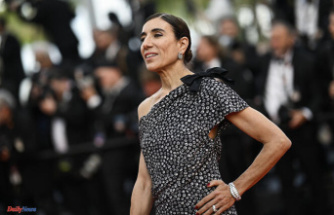PHOENIX , Kisha Gulley was kicked out of a Facebook page for mothers with autistic kids after a heated debate she felt was racial. She clashed with white-dominated support groups that she had sought as a new mother.
Gulley, an Afro Latina, created her own parenting blog as well as social media accounts. She now has a source for income.
Multibillion-dollar parenting worlds of sleep training books, toddler activities ideas, breastfeeding tips, and all things parenting have always been dominated by white people. Most of the faces on parenting book jackets are white. Until recently, the so-called mom influencers brands use to promote their products were also mostly white.
This has created a gap for women of color, especially new moms, who have difficulty finding culturally appropriate parenting advice and products.
They are taking matters into their own hands more often.
"If I don't find it, then that's the time we need to create it for ourselves. Gulley, who lives near Phoenix, said that she knew she wasn't the only one with these questions.
Gulley began to research resources and find answers for her family when she found out her son was autistic. There were many important questions that experts couldn't answer, even though there was so much information.
For example, how could she brush through the thick hair of her son without irritating his sensory issues? What sunscreen is safe to use on dark skin?
It was a difficult time for her. The worst moment came in the Facebook group, when several white women were rude and dismissive to a Black mother who sought help with how to communicate with her family about her son's autism diagnosis. They didn't understand that older generations in certain communities of color can be anxious about autism and may think that issues are down to discipline and behavior. Gulley was able to defend the mother and was expelled from the group.
She said that she quickly built her own social media presence and is now able to make a living out of it. This is a far better income than the 15 years she spent as a flight attendant.
Stacey Ferguson has always been conscious of the importance of diverse parenting voices. It was difficult for Ferguson to find communities and forums online that reflected her experiences as a Black mom.
Ferguson is a lawyer by trade and now a business owner. He founded Blogalicious 12 years ago, which is an organization and conference that helps women of color to monetize their blogs.
Blogalicious's first conference attracted 177 participants. Ferguson closed them down in 2017 after 500 people attended every year.
"There was a feeling of magic and wonder in the room. Ferguson stated that it was surprising to see so many brands interested in meeting our community.
Mommy bloggers have become Instagram influencers over the years. Posts with tips and tricks for teaching babies how to eat or getting to sleep are accompanied by carefully curated images. Influencers often advertise products that moms might find useful.
This trend was mainly started by white women and brands who sought them out. Ferguson claims that the landscape has changed and that brands are now more focused on reaching diverse parents.
However, there is still a problem. Ferguson stated that marketing budgets for multicultural targets are less than general advertising. White women were traditionally paid to market to a broad audience. This means that a white mom can make more marketing to a broad audience than a woman who focuses on Latina moms.
Ferguson stated that marketing is still viewed in an archaic manner. "The brands and agencies who understand the need to diversify are making great progress," Ferguson said. There are still many who are not able to diversify.
Although there isn't consensus about how much companies and brands spend on advertising and sponsoring mom influencers' campaigns, several marketing experts believe it to be in the billions.
Larry Chiagouris from Pace University, a professor of Marketing at the Lubin School of Business, stated that brands are only now starting to catch up with Latino and Black American markets.
Chiagouris stated that the world of parenting influencers has always been dominated white women, as they have been the majority, but that he is increasingly seeing Latinas and Black women join the field.
It's like a chicken-and-egg situation. Marketers are eager to spend money on Latino influencers. But, you need to find them. Chiagouris stated that there are not as many Latino influencers as you might think.
Jacqueline Hernandez Lewis, Long Island, New York started blogging nine years ago, as a law student, and military spouse looking for a community.
Hernandez Lewis, 33, became a mother after becoming a mom. She wanted to create a place where Latinas and other mothers of color feel empowered. After having her first child, Hernandez Lewis struggled to adjust to the new job and sought a way to be able to stay home with a steady income. She has now three children.
Hernandez Lewis made $25 on her first sponsored post. She now earns between $700 and $3,000 per post while working full-time.
In her recent Instagram posts, she features ads for Disney Books' Spanish-language line of books; Poise's pads for postpartum women; and for a popular brand in baby wipes.
Hernandez Lewis believes it is important for women of color to have an online community, and be represented. But it's equally important that they reap the benefits of their purchasing power.
"We should be represented on both the business and consumer side." Hernandez Lewis stated that there are brands that have not been as inclusive as I hoped. However, many brands are changing and becoming more inclusive.
Date Of Update: 01 November 2021, 14:02











